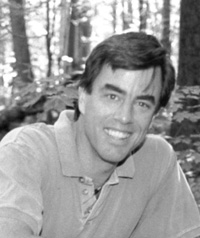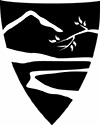2003 Lecture
“Challenges and Opportunities for the Application of Historical Studies to Conservation”
by Dr. David R. Foster

Despite an apparent movement in environmental history away from ecological studies towards more cultural analyses, there is a critical need and demand for more collaboration with historians, archaeologists, and social scientist in ecology and conservation management. David R. Foster, Director of the Harvard Forest, Harvard University, shared lessons from the intersection of history and ecology. He identified and discussed numerous factors responsible for this situation, explored ways of enhancing the status and application of historical ecological studies, and identified notable opportunities for increased incorporation of historical approaches in conservation.
David Foster has written numerous articles relating to forest ecology, forest dynamics, and vegetation change in the northeastern United States. He is the author, co-author, or editor of several books, including Stepping Back to Look Forward: A History of the Massachusetts Forest (Petersham, Mass.: Harvard Forest, Harvard University, 1998; Charles Foster, ed.), Thoreau’s Country: Journey Through a Transformed Landscape (Cambridge, Mass.: Harvard University Press, 1999), and New England Forests Through Time: Insights from the Harvard Forest Dioramas (Petersham, Mass.: Harvard University Press, 2000).
The Lynn W. Day Distinguished Lectureship in Forest and Conservation History is sponsored by the Forest History Society, the Duke University Department of History, and the Nicholas School of the Environment.
For more information please contact Dr. James Lewis, Forest History Society historian, at (919) 682-9319.




